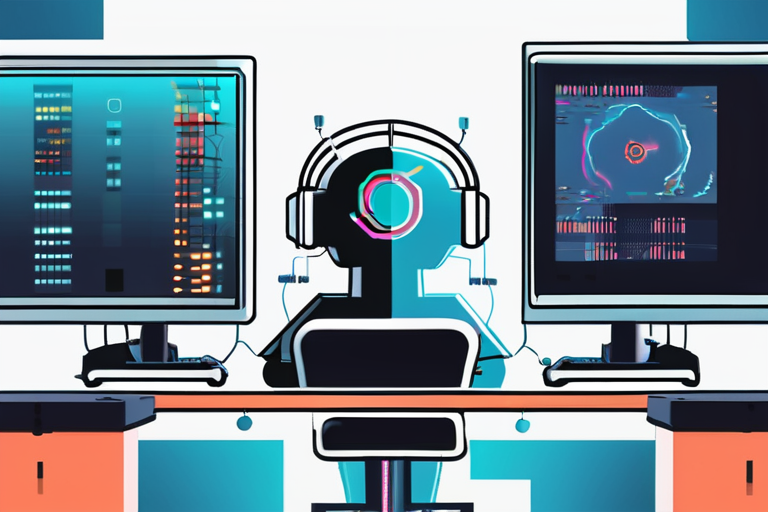Crypto Industry Urged to Address AI and Quantum Computing Threats
A prominent figure in the crypto industry has sounded the alarm on the potential dangers of artificial intelligence (AI) and quantum computing, warning that a breach could have catastrophic consequences for the entire sector.
Kostas Chalkias, chief cryptographer at Mysten Labs, recently expressed his concerns about the vulnerability of blockchains to AI-powered attacks. "If an AI system were to ever successfully attack or otherwise disrupt the cryptography of a respected blockchain, even in a white hat research setting, every panic sell-off crypto has seen before that moment would feel small," Chalkias said.
According to Chalkias, the stakes are particularly high when it comes to quantum computing. "If a quantum computer ever broke a blockchain, we might as well all close down shop. The point of blockchains would be permanently undermined."
The threat is not hypothetical; researchers have already demonstrated the potential for AI and quantum computers to compromise cryptographic systems. In 2023, a team of scientists from the University of California, Berkeley, successfully used a quantum computer to break a widely used encryption algorithm.
Chalkias attributes the lack of urgency among some in the industry to complacency. "Some protocols are already implementing [quantum-resistant] cryptography, but why are many falling short?" he asked.
The implications of an AI or quantum computing breach go beyond the crypto industry. A compromised blockchain could have far-reaching consequences for global financial systems and trust in digital transactions.
While some experts argue that the risks are still speculative, others acknowledge the potential threat. "We need to take this seriously," said Dr. Rachel Goldstein, a leading expert on AI and cryptography at MIT. "The development of quantum-resistant cryptography is not just a technical challenge but also an economic one."
Despite the urgency, progress has been made in developing quantum-resistant cryptographic protocols. For example, the Ethereum Foundation has announced plans to implement post-quantum cryptography in its upcoming Ethereum 2.0 upgrade.
As the crypto industry continues to evolve, Chalkias' warning serves as a reminder of the importance of staying ahead of emerging threats. "We need to be proactive and invest in research and development to ensure that our cryptographic systems remain secure," he emphasized.
The crypto community is urged to take heed of these warnings and prioritize the development of quantum-resistant cryptography to mitigate the risks associated with AI and quantum computing.
Background
Artificial intelligence (AI) refers to computer systems capable of performing tasks that typically require human intelligence, such as learning, problem-solving, and decision-making. Quantum computing, on the other hand, leverages the principles of quantum mechanics to perform calculations exponentially faster than classical computers.
Additional Perspectives
Dr. Goldstein emphasized the need for collaboration between researchers, policymakers, and industry leaders to address the challenges posed by AI and quantum computing. "We need a coordinated effort to develop and deploy quantum-resistant cryptography," she said.
Chalkias' warning has sparked debate within the crypto community about the importance of prioritizing security in the face of emerging threats. Some argue that the benefits of blockchain technology outweigh the risks, while others emphasize the need for proactive measures to ensure the long-term viability of the sector.
Current Status and Next Developments
The development of quantum-resistant cryptography is an ongoing effort, with various protocols and standards being proposed and implemented. The Ethereum Foundation's plans to upgrade its network with post-quantum cryptography are seen as a significant step forward in addressing the threat.
As researchers continue to push the boundaries of AI and quantum computing, the crypto industry must remain vigilant and proactive in addressing emerging threats.
*Reporting by Coindesk.*



 Hoppi
Hoppi

 Hoppi
Hoppi

 Hoppi
Hoppi

 Hoppi
Hoppi

 Hoppi
Hoppi

 Hoppi
Hoppi











